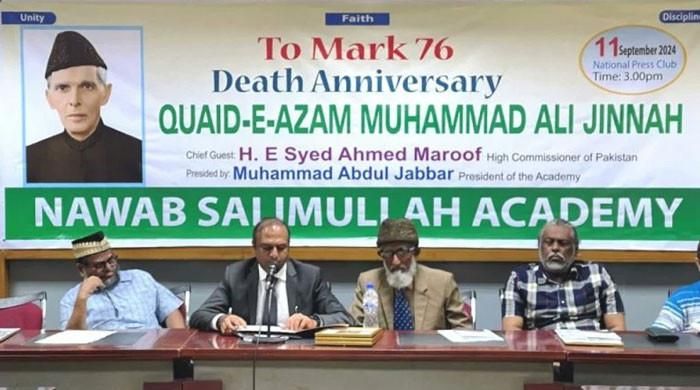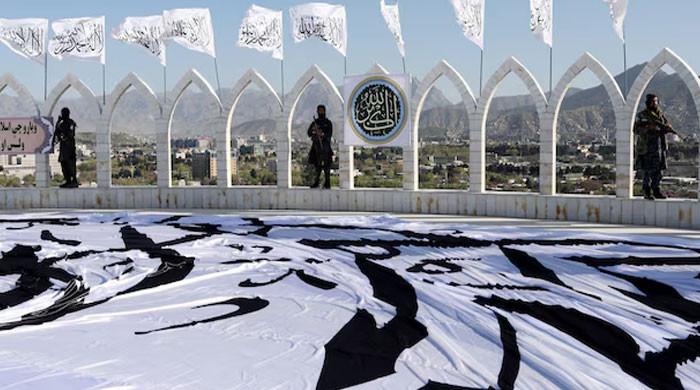- Urdu songs and poetry were played and recited at the event.
- “Dhaka must now maintain its relationship with Pakistan.”
- The spokesman said Jinnah had put an end to “incompetence and political strife.”
For the first time in the history of Bangladesh, the death anniversary of Quaid-i-Azam Muhammad Ali Jinnah was commemorated in Dhaka.
The commemoration marked Jinnah's 76th birthday, with Urdu songs and poetry being performed and recited in the country's capital. Dhaka Tribune reported Thursday.
The publication said the event was organised by Nawab Salimullah Academy at the Tofazzal Hossain Manik Miah Hall of the National Press Club in Dhaka.
Pakistan's High Commissioner to Bangladesh was also expected to attend the event as a guest of honour, but he could not attend. Deputy High Commissioner Kamran Dhangal was present.
Professor Dr Mostafizur Rahman also presented a paper outlining Jinnah's life story. Academy President Muhammad Abdul Jabbar and journalist Mostafa Kamal Mojumder were also present to mark his death anniversary.
A poet, Jafarul Haq Jafar, recited a poem in Urdu at the event, while Urdu songs were sung by two Pakistani students studying in Bangladesh.
“Had Bangladesh not been part of Pakistan in 1947, we would be in the same situation as Kashmir today, with the Indian junta pointing its guns at our necks. Bangladesh got its independence because of Pakistan, which Jinnah helped create,” said Nagorik Parishad Md Samsuddin, the event's organiser.
“Why should we change the name of Allama Iqbal Hall or Jinnah Avenue? These changes were made because Delhi wanted them, but we did not. Bangladesh must foster strong relations with China and Pakistan,” he added.
Speakers at the commemoration praised the Quaid and said Pakistan would not have come into existence without Jinnah and if that had not happened, “Bangladesh would not exist either.”
“Jinnah is the father of our nation, but we do not recognise him. We must preserve our brotherhood and I hope that Jinnah's birth and death anniversaries will continue to be celebrated here every year,” said Nazrul Islam, one of the speakers at the event.
He added that regardless of the circumstances, Bangladesh also gained independence and stressed that Dhaka must now maintain its relationship with Pakistan.
Another attendee at the event praised Jinnah, saying he had put an end to the “political incompetence and conflict” that the Indian continent faced after 1857.
“Had Jinnah not taken over the responsibility of Bangladesh in 1947, we would be in the same situation as West Bengal, and we would still be a part of India. It was because of his leadership that East Pakistan remained united with West Pakistan,” he said, advising the new structure in Bangladesh to evaluate friendship with the country.
Deputy High Commissioner Kamran Dhangal, who also attended the commemoration ceremony, described Quaid-i-Azam's leadership on the platform of the Muslim League as “outstanding”.
He added: “His vision for the new nation was clear. He advocated a progressive and inclusive state, reflecting a commitment to freedom and tolerance. His contributions were revered not only in Pakistan but also across the world.”












